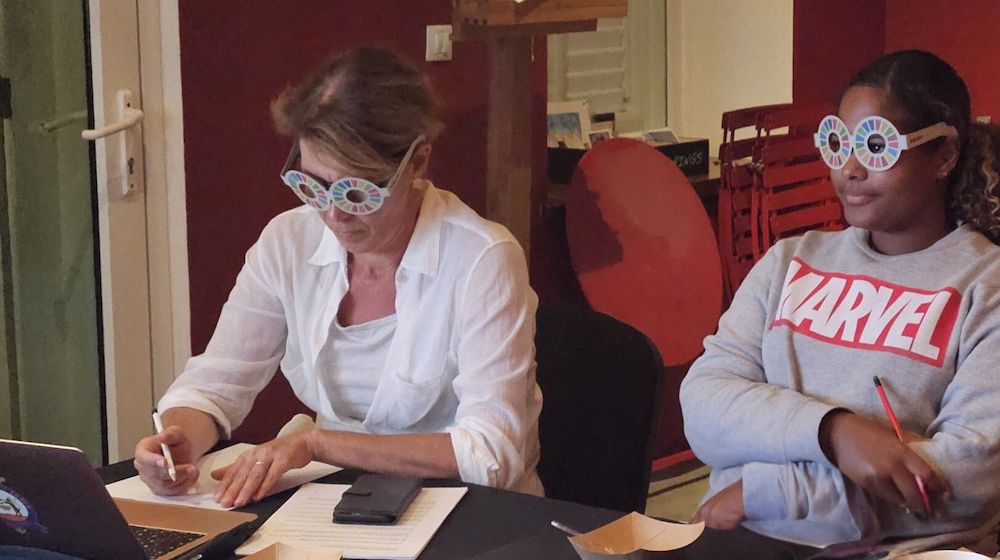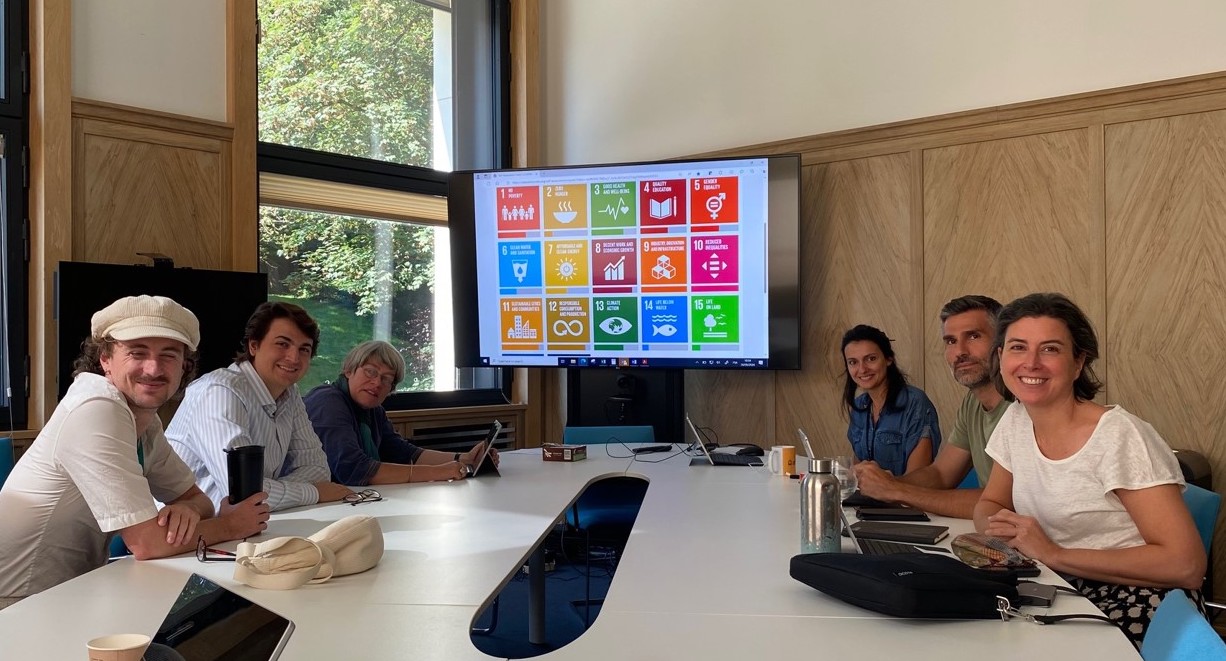Since its launch in May 2024, the Our Collections Matter (OCM) Self-assessment Tool has been available to museums, libraries, archives, and other organizations working with heritage collections worldwide. This tool uses a series of targeted questions to help these organizations better understand how their collections-based work contributes to achieving the Sustainable Development Goals (SDGs) and discover new ways to enhance this contribution. Today, we share first-hand experiences from the teams at the Terramar Museum in Bonaire and the House of European History in Belgium.
Connecting the dots between the museum work and the SDGs
The Terramar Museum showcases the rich history of Bonaire’s communities and their global interactions through a diverse collection of archaeological, ethnographic, and artistic objects. Maya Narvaes, Project Manager at Terramar, is participating in the 2024 OCM Field Projects, which has expanded her understanding of the SDGs and guided her in creating strategies to better support the community.
The museum team conducted the OCM self-assessment to evaluate how their work currently addresses the SDGs. This baseline helps identify gaps and improve the museum's planning for sustainable development. Staff participation and effective communication throughout the process were key to identifying the SDG targets the museum contributes to and areas for improvement. The result affirmed that the museum is already making stride to the SDGs, motivating the team to continue expanding sustainability-focused activities.
"The [OCM] Self-assessment Tool broke down each target, providing us with great insights. Now, the
entire team is more aware and knowledgeable about the Sustainable Development Goals."-- Maya Narvaes, Project Manager, Terramar Museum
These efforts include Terramar's focus on conserving and restoring Bonaire's cultural heritage (SDG 11) and transforming its spaces into more inclusive platforms for community engagement and lifelong learning opportunities (SDGs 4, 10, 16).
Learn more about the Terramar Museum's experience
Fostering cross-departmental collaboration for sustainability planning
At the House of European History (HEH) in Brussels, a recent special exhibition "Throwaway. The History of a Modern Crisis" invited audiences to reflect on issues related to waste management, consumption, consumerism, and recycling. Recognizing the intrinsic link between sustainable development and museum practices, HEH staff explored and implemented additional behind-the-scenes actions aligned with SDGs 4, 12, and 17. This initiative sparked the creation of HEH’s first-ever Sustainability Working Group. In this context, Rocío Del Casar, Head of Collection Management Department, brought together colleagues from the collections, curatorial, learning, communications, and facilities departments to further connect the dots between their work and the SDGs by taking the OCM self-assessment.
This cross-departmental collaboration to use the OCM Self-assessment Tool complemented HEH's highly participatory approach, encouraging team members from various departments to exchange their perspectives on emerging topics and jointly revisit existing matters concerning sustainable development and their collections-based work. The OCM self-assessment helped the museum identify key areas for improvement and formulate actionable recommendations. Through collaborative effort and reciprocity, the entire institution was able to take greater steps toward fulfilling its sustainability aspirations.
Testimonials from the House of European History
"For someone quite new to the field like me, the SDGs seemed overwhelming and remote. Using the OCM Self-Assessment Tool helped me understand how they tie in with museum practice and made them totally relevant to our work... Thank you for an eye-opener tool that is being thoroughly used and will continue to be for all our future endeavours!"
-- Rocío Del Casar, Head of Collection Management Department, House of European History
"As an architect and Facility Manager at the House of European History, the ICCROM Self-assessment Tool proved to be a valuable resource. It has helped us identify key areas where we can improve, such as energy efficiency, offering practical recommendations for future action. While we are still in the assessment phase, the [OCM] toolkits provide clear, actionable steps for each SDG target, helping us focus on long-term sustainability improvements, from accessibility to resource management."
-- Carlos Ibañez Fandos, Facilities Manager, House of European History


